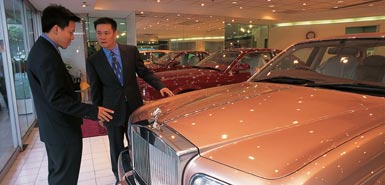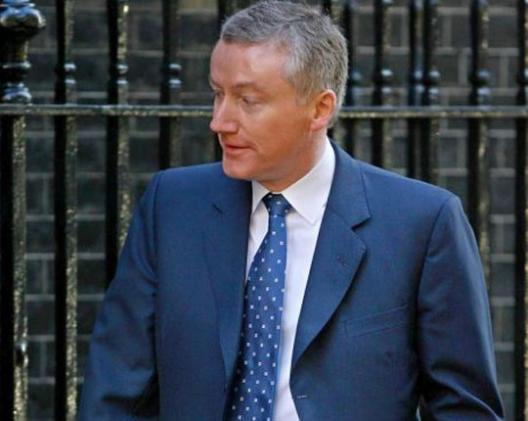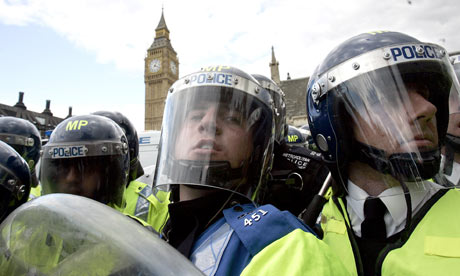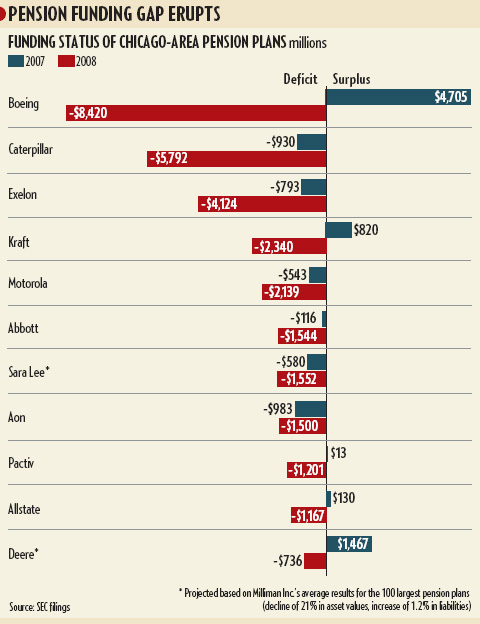– The Emerging Sunspot Cycle 24 and a Weakening Magnetic Field (Outside the Box):
What does this mean for our planet and species?

Introduction:
If you were thinking that the only things we have to be concerned about include wars, famines, and economic crashes, think again.
– Mexican drug wars create demand for hitman and acid baths (Telegraph):
Criminal psychiatrists said dozens of killings linked to drug cartels every day have led to a boom in the number of bodies dissolved in acid.
– Israel’s death squads: A soldier’s story (Independent):
A former member of an Israeli assassination squad has broken his silence for the first time. He spoke to Donald Macintyre
– Police ‘over the top’ at climate camp (Guardian):
Police have been accused of setting a “dangerous precedent” when they confiscated hundreds of items of property – including children’s crayons, a clown’s outfit and a pensioner’s walking stick – from people attending an environmental protest camp at Kingsnorth power station.
– Is Ireland fated to be another Iceland? (Guardian):
“That is the optimistic scenario,” Kelly said, arguing that his worst fear is a collective economic failure of several countries in eastern Europe, along with Ireland and those on the southern periphery of the eurozone – Greece, Italy, Spain and Portugal – that would be beyond the capacity of any government or group of governments to stem.
– TMZ Story Forces Bank to Return $1.6 Billion!!!! (TMZ):
How’s this for action. Northern Trust — the bank TMZ exposed this week for throwing a series of lavish parties and concerts in L.A, is giving back the $1.6 billion in federal bailout money!
– Warren Buffett loses billions (Telegraph)
– Bank of England poised for rate cut (Telegraph):
“The move is the latest stage in the Bank’s efforts to prevent the economy from sliding towards deflation.”
(The move is the latest stage in the Bank’s efforts to destroy the pound.)
– MI5 ALERT ON BANK RIOTS (UK Express):
TOP secret contingency plans have been drawn up to counter the threat posed by a “summer of discontent” in Britain.
– HSBC takes £17bn hit on bad loans (Times Online):
HSBC is to own up to the full horror of its American sub-prime business, Household, when it unveils a £7 billion goodwill write-off in addition to a £17 billion provision against rising bad loans.
– Lloyds heading for 75% state ownership (Guardian):
The taxpayer could end up with a near 75% stake in Lloyds Banking Group it emerged today after the UK’s biggest high street bank admitted the HBOS mortgage lender it rescued had incurred £10.8bn of losses last year.
– These bankers are lucky that they are not going to jail (Guardian):
Assuming it is out of the question to hang, draw and quarter Sir Fred Goodwin, pluck out his intestines while they are still warm and wriggling, stuff them into his greedy mouth and then display his severed head on a spike at the Tower of London, could we settle for shooting him instead? Yes, I know, I’m going soft.
– AIG May Get $30 Billion in Additional US Capital (Bloomberg)
– EU rejects eastern Europe rescue plan (Financial Times):
– Bush a four-letter word at CPAC (Politico):
Conservative icon Newt Gingrich, the former House Speaker, railed against the “Bush-Obama continuity in economic policy” and the “Bush-Obama big spending program” in a speech Friday.
“We had big spending under Bush and now we have big spending under Obama,” Gingrich said. “And so now we have two failures.”
– Obama Will Seek Another $750 Billion for Banks if Necessary, Orszag Says (Bloomberg):
March 1 (Bloomberg) — President Barack Obama’s administration will seek congressional approval for as much as $750 billion in new aid to bolster U.S. financial institutions if it is needed, White House budget director Peter Orszag said. (Another $750 Billion for the banksters? Yes, we can give more money than Bush to the crooks who caused this crisis.)
– Obama buries Reaganomics under $3.6 trillion mountain (Times Online)
(“Deficit spending is simply a scheme for the confiscation of wealth.” – Alan Greenspan
In the end the taxpayers’ will have to pay for all this government spending with their wealth. In this case the deficit will have to be financed through Treasuries. The bond bubble will burst, the dollar will be destroyed and the U.S. will default on its debt. Game over. “Reckless spending” (Ron Paul) and “horrible economics” (Jim Rogers) will turn the U.S. into a Third World Country very soon.)
– Gordon Brown aims for ‘global new deal’ with Barack Obama (Telegraph)
– Big Dividends, in a Dangerous Terrain (New York Times)
– UK given approval for £2.3bn auto bail-out (Telegraph)
– Motorway cameras let police and MI5 track all car trips across the country (Daily Mail):
The police and MI5 have been given access to a network of infrared cameras that can track millions of car journeys across Britain.The 1,090 cameras read numberplates of cars on all motorways and major trunk roads, recording the time, date and location of the vehicle and storing the data for five years.
– Delphi Allowed to Cancel Benefits for 15000 Workers (Bloomberg)
– Missile threat to British troops (Times Online):
(And the U.S. supplied Afghanistan with weapons to fight the Russians. This war makes no sense at all, unless you belong to the very few people benefiting from it.)
– Harvard’s masters of the apocalypse (Times Online):
I write as the holder of an MBA from Harvard Business School – once regarded as a golden ticket to riches, but these days more like scarlet letters of shame. We MBAs are haunted by the thought that the tag really stands for Mediocre But Arrogant, Mighty Big Attitude, Me Before Anyone and Management By Accident. For today’s purposes, perhaps it should be Masters of the Business Apocalypse.
– Mom: Deployment leaves no one to care for kids (AP):
DAVIDSON, N.C. (AP) — When Lisa Pagan reports for duty Sunday, four long years after she was honorably discharged from the Army, she’ll arrive with more than her old uniform. She’s bringing her kids, too.
– Indian Pt. Nuclear Power Plant Broken Pipe Spurs Safety Worries (New York Times):
The broken pipe was found Feb. 16, isolated by the middle of that week and dug up and replaced last Saturday. But in the meantime, about 100,000 gallons of water, or 10 percent of the water in the secondary cooling system storage tank, had escaped.
– JP Morgan Chase Continues Foreclosure Proceedings Despite Promised Freeze (AlterNet)
– Chomsky: Humanity’s survival ‘by no means a sure thing’ (Raw Story)
– Mortgage Delinquencies Jump 50 Percent (Money News)
– We need shock and awe policies to halt depression (Telegraph):
Taiwan’s exports to China fell 55pc in January, Japan’s fell 45pc. These exports are links in the supply chain for China’s industry. Manufacturing output in the Shanghai region fell 12pc in January.
– Minority groups to get extra Government help to protect them from the recession (Daily Mail)
– Higher tax for all until 2013, Taoiseach warns (Guardian):
Every Irish citizen will have to pay more tax in order to rescue the country from the deepening recession, the Taoiseach warned last night.
– Quarter of water coolers may have ‘dangerous’ bacteria (Sunday Herald):
Water from bottle-supplied coolers was the most contaminated, with 14 out of 35 samples containing bacteria. Eight samples showed the presence of coliform bacteria, usually associated with faeces, and three contained staphylococcus aureus, which can cause serious illnesses.
– Parents told not to give cough mixes to under-6s (Daily Mail):
The MHRA added that the possible side effects – although not dangerous – could include sleep disturbance, allergic reactions and hallucinations. In the face of the lack of evidence that the medicines do any good they have decided that many can no longer be sold for use on children under six.
– Yeti Could Exist, says Sir David Attenborough (AOL News):
In a BBC TV interview, Britain’s Sir David Attenborough said he is “absolutely baffled” by footprints that may have been left by such a creature. “Very, very convincing footprints have been found,” at 19,000-foot elevations, he said. “Nobody goes up to 19,000 feet just to make a joke.”




